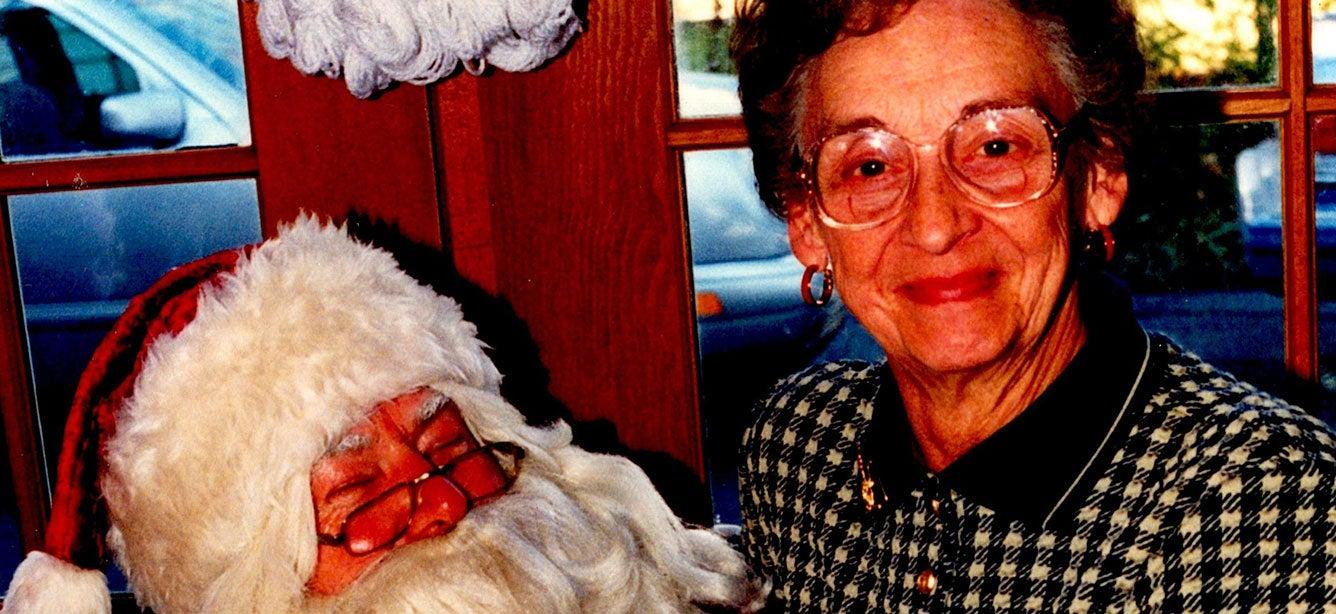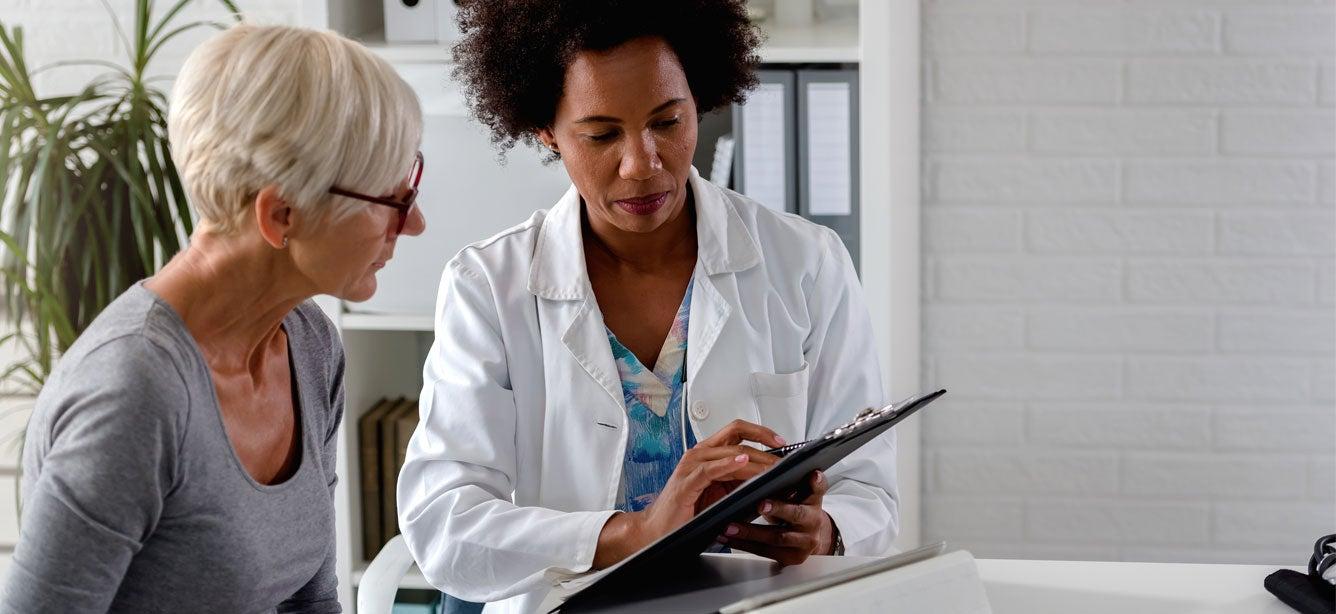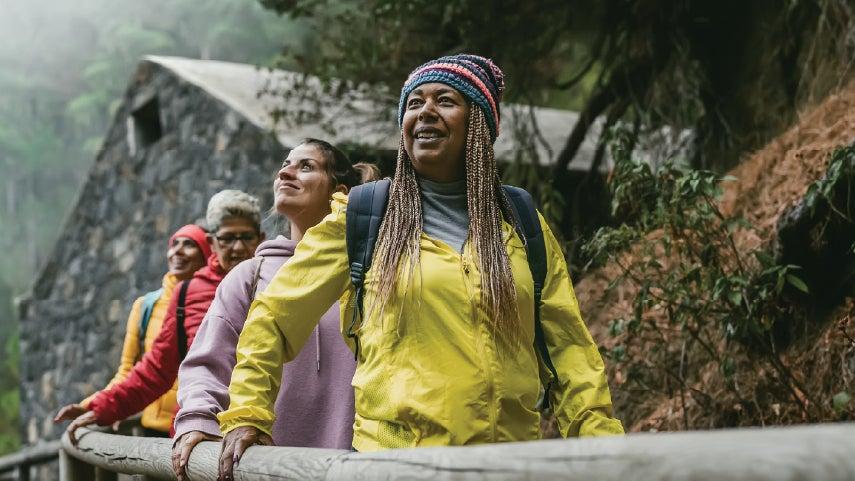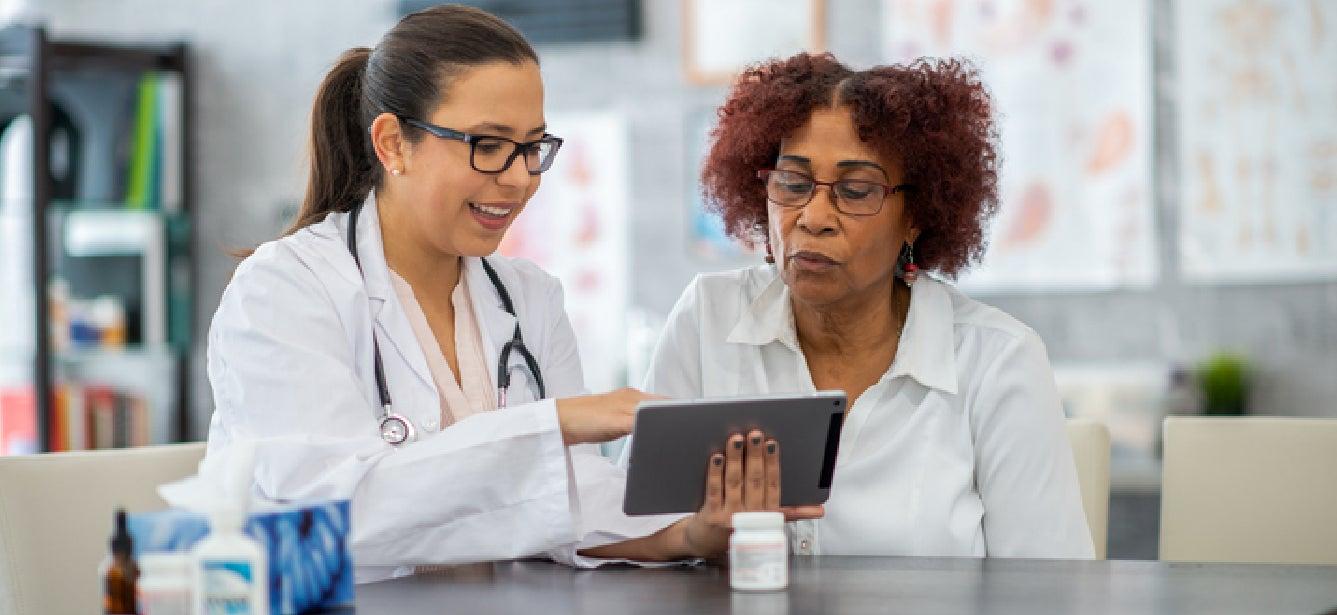
Whether leading a rousing chorus of “We wish you a Merry Christmas,” donning a blinking Rudolph nose, setting up her sprawling Christmas village display, or sitting on Santa’s lap at the annual family Christmas party, Alice Brennan was the embodiment of the Christmas spirit.
Born the day after Christmas, or “Boxing Day” as she always called her birthday, Alice would be the first person to reach out to friends and neighbors who had suffered a loss or lived alone to invite them over for some holiday cheer.
This holiday season, in Alice’s memory, we encourage everyone to take care of themselves by focusing on what gives you peace, makes you happy, and enriches the lives around you.
Why can the holidays be challenging for older adults?
While Alice loved and celebrated the holidays, this time of year can be challenging for many older adults. The holidays can also present a heightened sense of loss, stress, and depression. The grief from the loss of a loved one (recent or past) can be felt more deeply during the holidays.
There can also be a sense of loss of family traditions, or health-related issues may keep people from participating in holiday celebrations. These may not only impact emotional well-being, but loneliness and depression can also surface with physical symptoms and serious health conditions. It is important to pay close attention to your physical and emotional health and take steps to incorporate activities of self-care.
Here are some things you can do to navigate the holiday season.
Why it's important to talk about your feelings during the holidays
There can be emotional expectations of what the holidays should be like, and feelings of sadness can become more pronounced when others celebrate the season. Understand that your feelings of loss or depression are real and share them with others, whether a family member, friend, or a professional counselor.
Grief can intensify during the holidays, and it’s sometimes helpful to know that you’re not alone. The Mayo Clinic offers online holiday support groups for those experiencing grief from losing a loved one. Acknowledging and verbalizing your feelings can provide some relief and alert others to how you feel so they can provide emotional support through the holidays.
If you’re experiencing extreme emotional distress, you can dial or text 988 to speak to a trained counselor in suicide prevention. This service is free and confidential and offered 24 hours a day, 7 days a week.
Positively remember past holiday traditions or create new ones
The holidays are often a time of reflection, which can lead to feelings of loss of people and cherished traditions of times past. When reminiscing, focus on your favorite people or traditions. Creating a journal, scrapbook, or recording of holiday traditions can create a legacy of treasured memories for loved ones. We often hold traditions dear this time of year, but you can also start new ones:
- Learn about different cultures and holiday rituals.
- Watch a holiday movie marathon or drive through neighborhoods to enjoy the holiday decorations.
- Find an activity that brings you joy or a sense of meaning.

Stay connected during the holidays
Being socially isolated can affect your emotional and mental health. Find social activities you can participate in, whether it’s with family, friends, church, or a local senior center. Some of these offer transportation services or provide activities remotely for those with computer access.
Become involved in or volunteer with community organizations like homeless and domestic violence shelters, food pantries, SPCA, hospitals, or churches that engage in outreach activities for those in need. If you have limited transportation, you can always write cards, adopt a family, and provide gifts or food. Reach out to others who may be socially isolated. What the past two years have taught us is how to be connected to others in different ways—phone calls, letters, or through the Internet.
Take care of yourself
Some basic self-care can do us all a world of good especially if the holidays are stressful.
For example, exercising and simply moving can relieve stress and depression. Go for a walk, dance, or take an exercise class. Many senior centers offer exercise classes, and some do them remotely. The Public Broadcasting Service (PBS) offers exercise classes that have been adapted for a variety of physical abilities. You can access these classes on TV or through the Internet.
Try to eat healthy, stay hydrated and be conscious of your alcohol intake over the holidays. Older adults do not metabolize alcohol like younger adults do, which increases the likelihood of falling, and accidents. Alcohol can also lower your mood. Remember, also, that mixing alcohol with certain medications is dangerous and could lead to more health problems.
Consider seeking medical attention
Don’t hesitate to reach out to your health care provider. They can offer help and support to get you through the holiday season and can assess you to determine if medication and counseling are needed to keep you safe and well. Consider taking a family member or trusted friend with you, who can help your provider to understand what you are going through, and also help you to remember what you talked about after you leave the office.
Remember, it is important to empower yourself with information when seeking medical advice that might involve medication:
- Be prepared to ask questions about potential side effects and interactions with any current medications you’re taking.
- Ask whether it is safe to drink alcohol while on the medication.
- Be aware of the cost of the medication and how the prescription may impact your quality of life.
- Educate yourself so that you and your doctor, as a team, can make informed decisions about what is best for you that incorporates your values and priorities.
We at Team Alice hope you all remain healthy, safe, and peaceful during this holiday season.
This is the fourth article in a series from Team Alice, a project of The Center For Successful Aging at the University at Buffalo. Please visit Team Alice’s YouTube page for more information on medication safety.
Funding for this research was provided by RRF Foundation for Aging Grant #2019060 and USDeN NIA R24AG064025 subaward STE2196-17.



